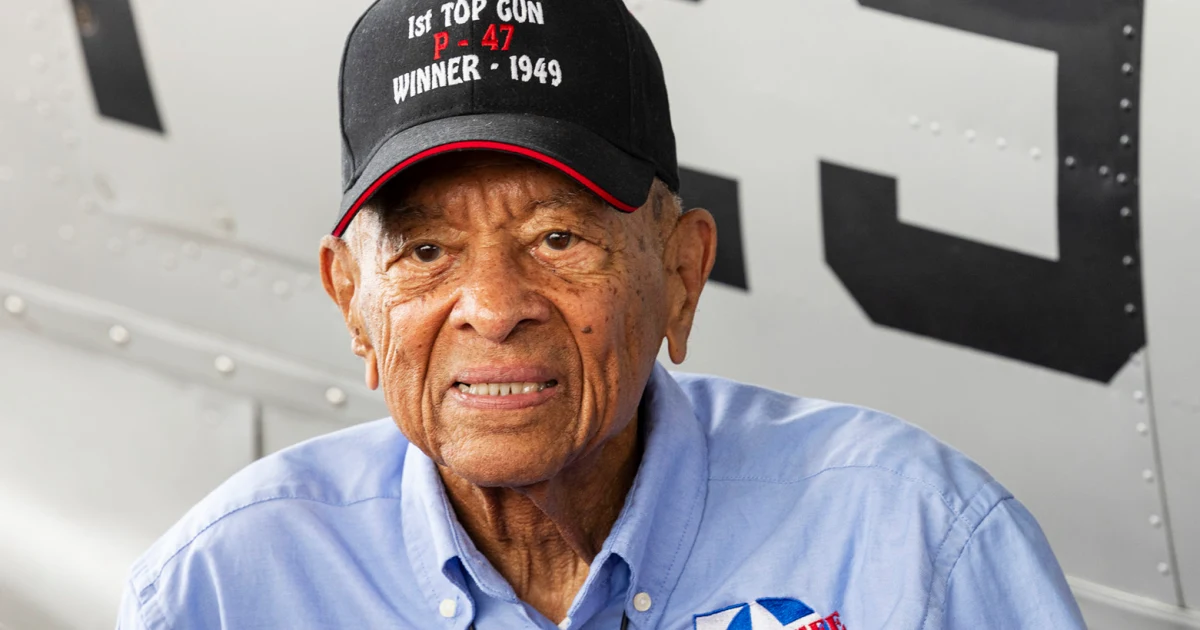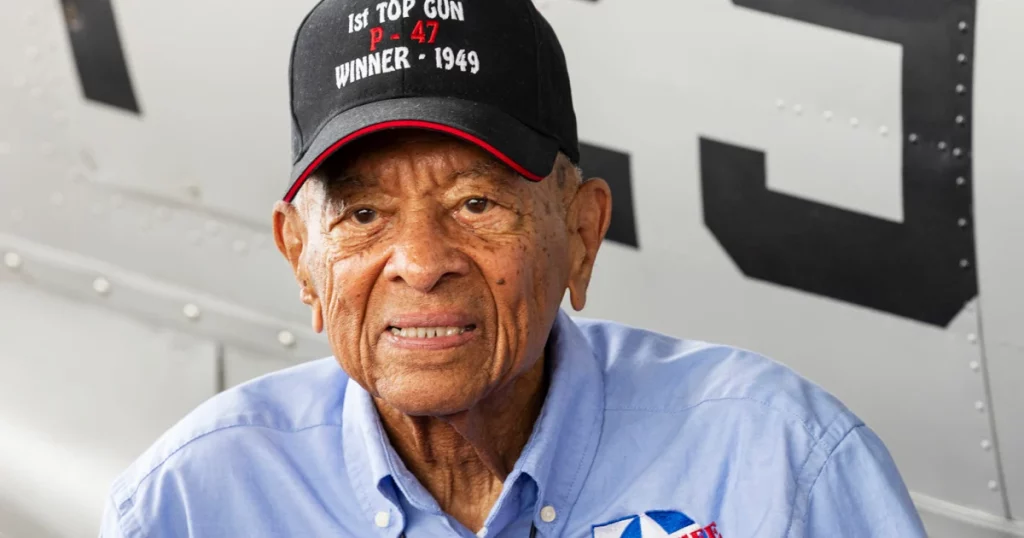Harry Stewart Jr., a man who defied the odds as one of the Tuskegee Airmen and helped shape American history with his bravery in the skies, passed away on February 2, 2025, at the age of 100. His life was one of service, resilience, and quiet triumph over adversity.
A Boy Who Dreamed of Flying
Born on July 4, 1924, in Newport News, Virginia, Stewart’s early years weren’t marked by privilege, but they were filled with dreams. When his family moved to New York, he would watch planes soar above LaGuardia Airport, imagining himself at the controls.

He grew up in a challenging environment for a young Black guy with lofty goals. Opportunities were limited and segregation was enforced by legislation. However, Stewart never gave up. Determined to become a pilot, he joined the U.S. Army Air Forces when World War II broke out. Despite widespread doubts about their ability, he trained with the Tuskegee Airmen, the first Black military aviators in the U.S. military.
Courage Under Fire
For Stewart, flying was more than simply a career; it was a mission to show that Black men could accomplish things that many Americans believed were impossible. Stewart performed 43 combat flights in a P-51 Mustang, which is recognizable by its distinctive red tail, while serving with the 332nd Fighter Group.
In one of his most incredible wartime feats, he shot down three German fighter planes in a single mission over Austria on April 1, 1945. But when he returned home, his heroism didn’t shield him from discrimination. “I was a war hero,” he once said, “but to many, I was still just a Black man.”
Dreams Deferred, But Not Lost
Stewart dreamed of becoming a commercial airline pilot, but the doors were firmly closed to him. He changed course, graduating from New York University with a degree in mechanical engineering and going on to have a prosperous career in the natural gas sector. Nevertheless, aviation and the boys he had flown with held a special place in his heart.
He spent his later years sharing his story with students and young people, encouraging them to break barriers of their own. “I fought so others wouldn’t have to fight the way we did,” he often said.
A Legacy of Change
Stewart loved receiving the Congressional Gold Medal, which he and the Tuskegee Airmen received in 2007. Additionally, he saw firsts he never imagined conceivable, such as Black pilots in the cockpits of commercial airlines. He remarked, “It felt like a dream come full circle.”
Harry Stewart Jr. led a life full of bravery, purpose, and optimism. Anyone with the courage to dream will continue to be inspired by his legacy.

